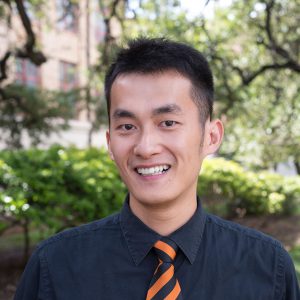Hopefulness, Mental Health, and Wellness Counseling Are Vital for Young Asian American Cancer Survivors
Posted on by
A Conversation with Dr. Anao Zhang
By Demetrius M. Parker, Health Communication Specialist, CDC, specializing in cultural communication
Dr. Anao Zhang is an Assistant Professor of Social Work at the University of Michigan. He also serves as an Associate Research Director at the Michigan Medicine Adolescent and Young Adult (MAYA) Oncology Program. His medical practice and research focus on adolescent and young adult cancer patients, adolescent health and mental health, and wellness counseling.
I met Dr. Zhang at the 2019 national conference of the American Psychosocial Oncology Society, where he made a presentation on health disparities and stress screening among young cancer survivors. He focused on young Asian American cancer survivors. Below are highlights from our recent conversation. We discussed the influence of health disparities and culture on the mental health and wellness of cancer survivors.
D. Parker, CDC: One interesting point of your presentation was your research on the Chinese American and Asian American cultural emphasis on the virtue, hope. How does hope factor into cancer survivorship, especially during this time of uncertainty?
Dr. Zhang: That’s such a good point. I encourage their hopeful attitude. I tell the parents, caregivers, and survivors that they’re the experts at this time. They have had a lot of successful practice already, because they are so resilient throughout their lives. It’s so obvious when I see a lot of my patients light up. A switch seems to be turned on. They’re like, Yeah, I can really contribute to help people. Being a supportive example to others inspires strength and hope—hope that things will get better. Their hopefulness helps keep them strong and resilient.
D. Parker, CDC: How has tele-health worked for cancer survivors?
Dr. Zhang: At Michigan Medical, we have a successful tele-mental health and tele-psychiatry program for cancer survivors and for non-cancer patients. From my research, I found that this type of program is almost nonexistent for cancer survivors.
D. Parker, CDC: Do you have any concerns as health care providers and cancer survivors begin to increase their use of tele-mental health programs?
Dr. Zhang: I’m concerned about health disparities. We need much more research. I expect that in the future, more reports will come out to guide the clinical practice of mental health through technology platforms.
D. Parker, CDC: What are some tips for cancer survivors to stay healthy mentally and emotionally?
Dr. Zhang: Cancer survivors, regardless of their ethnic background, sometimes have to deal with social isolation. However, very relevant to the Asian American survivorship community is the cultural difference between younger folks and older folks.
- It’s fair to say that younger folks are more adept at switching things to online platforms. For younger folks, I’d say keep up the good work, but be aware of computer-based fatigue (spending too much time in front of the computer).
- As for older adults, especially Asian American cancer survivors, I would encourage them to explore the Web and not be afraid. Information can be overwhelming, but they can find gems in that pile of information.
- Older adults should reach out to younger family members remotely to learn how to do these things. That’s quality interaction. Also, the older folks can bring themselves up to speed on the new technology.
- Find an exercise video. There are several 5- to 10-minute videos that are low impact and easy to follow. They’re helpful for maintaining emotional and mental well-being.
D. Parker, CDC: What message do you have for cancer survivors?
Dr. Zhang: Part of the reason I do this line of work is because I admire the level of endurance, hopefulness, and resilience that my patients always remind me of. I am grateful for their example.
Posted on by

